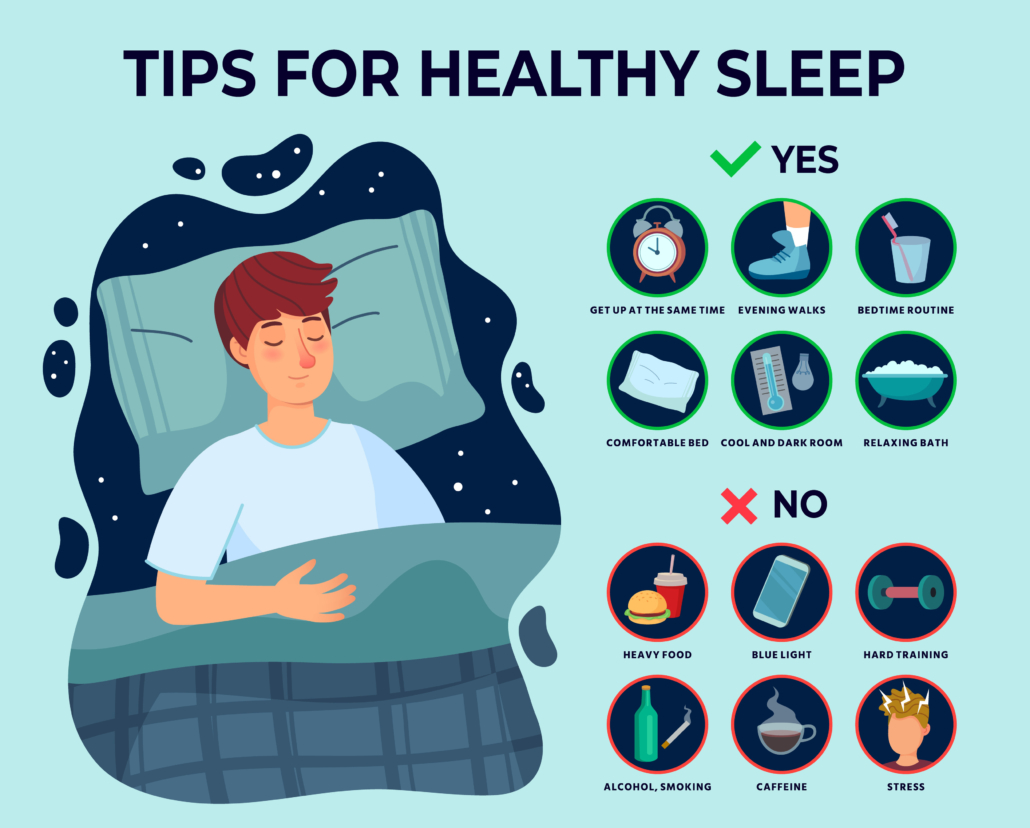
Establish a bedtime routine
Creating a bedtime routine can help signal to your body that it’s time to wind down and prepare for sleep. This can include activities such as reading a book, taking a warm bath, or practicing relaxation techniques like deep breathing or meditation.
Avoid stimulants before bed
Avoid consuming stimulants like caffeine or nicotine close to bedtime as they can interfere with your ability to fall asleep. Instead, opt for a calming herbal tea or warm milk to help relax your mind and body.
Create a restful sleep environment
Your sleep environment plays a crucial role in the quality of your sleep. Make sure your bedroom is dark, quiet, and cool to promote a peaceful night’s rest. Invest in a comfortable mattress and pillows that support your body and help you stay comfortable throughout the night.
Limit screen time before bed
The blue light emitted by screens can disrupt your body’s natural sleep-wake cycle, making it harder to fall asleep. Try to limit your exposure to screens like smartphones, tablets, and computers at least an hour before bedtime to give your brain time to relax and unwind.
Manage stress and anxiety
Stress and anxiety can make it difficult to fall asleep and stay asleep. Practice stress-reducing techniques like yoga, tai chi, or mindfulness meditation to help calm your mind and prepare for sleep. If you’re struggling with persistent sleep issues, consider talking to a healthcare professional for additional support.
Exercise regularly
Regular physical activity can help improve the quality of your sleep. Aim for at least 30 minutes of moderate exercise most days of the week to help regulate your sleep-wake cycle and promote restful sleep. Just be sure to avoid intense exercise close to bedtime, as it can be too stimulating and interfere with your ability to fall asleep.












Find Us on Socials